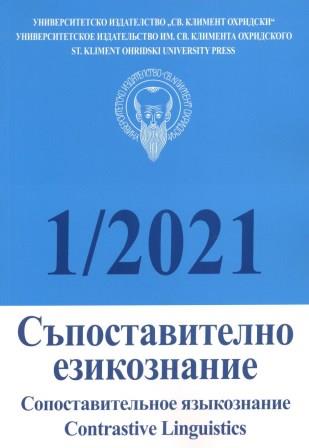Темпорални и аспектуални особености на перфекта в новогръцкия език
Temporal and aspectual peculiarities of the perfect in Modern Greek
Author(s): Boris VunchevSubject(s): Language and Literature Studies, Theoretical Linguistics, Philology
Published by: Софийски университет »Св. Климент Охридски«
Keywords: Modern Greek; perfect; temporal and aspectual characteristics; temporal and aspectual adverbials.
Summary/Abstract: The aim of the current article is to review the most significant temporal and aspectual features of the Modern Greek perfect and showcase their compatibility or incompatibility with certain temporal and aspectual adverbials. The basic conclusions can be summarized as follows: the perfect in Modern Greek is a grammaticalized resource for summing up a situation which is perceived as past from the reference point of the moment of speaking. It is non-actual since it is not used for introducing new information, hence non-narrative as it is not used for describing subsequent, whole events in the past. The perfect in Modern Greek possesses one extraordinary peculiarity – it is used for commenting on non-holistic situations, i.e., situations represented as repetitive in the past (imperfective focus), although the fossilized form of the basic verb in the analytical perfect forms in Modern Greek is perfective.
Journal: Съпоставително езикознание / Сопоставительное языкознание
- Issue Year: 2021
- Issue No: 1
- Page Range: 29-35
- Page Count: 7
- Language: Bulgarian

